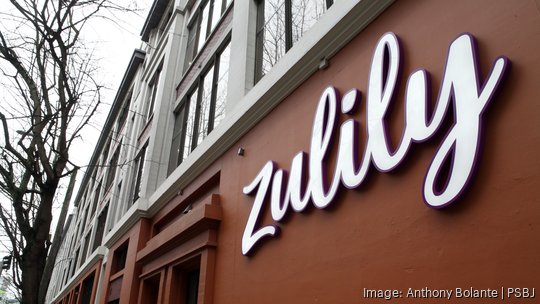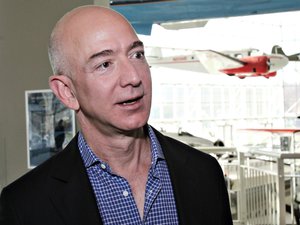
The Federal Trade Commission's antitrust lawsuit against Amazon.com Inc. (Nasdaq: AMZN) alleges ruthless tactics against fellow Seattle e-commerce company Zulily.
The details involving Zulily were revealed in newly unredacted portions of a complaint filed on Thursday by the FTC. The original version, filed in September along with a bipartisan coalition of 17 state attorneys general, blacked out many of the details and even full paragraphs of the accusations against Amazon.
The complaint describes strategies that Amazon used to stifle competition and raise prices for consumers that the FTC characterizes as anticompetitive and unfair.
In the new version, the FTC alleges that Amazon targeted sellers who sold on both Amazon and Zulily, punishing these sellers if they offered lower prices on Zulily through one of the company's flash sales, a core part of Zulily's business at the time. In 2019, Zulily tried a "Best Price Promise" that showed its prices compared with competitors like Amazon, which had an estimated 100 times the U.S. sales volume of Zulily in 2019.
"To Amazon, this price competition was intolerable — and so it set out to destroy it," the complaint reads. "Its seller punishments quickly stopped many Zulily suppliers that were also Amazon sellers from offering lower prices on Zulily. Zulily’s suppliers told Zulily that they lost the buy box on Amazon because of Zulily’s discounted prices, and that they could not afford to lose their Amazon sales."
The "buy box" allows consumers to easily add an item to their cart when on a seller's page on Amazon. Removing the box makes the process more confusing and hurts the seller's overall sales. The complaint alleges many sellers stopped selling on Zulily because they couldn't afford to have their business harmed on Amazon.
The FTC also said Amazon would automatically match any discounted Zulily prices, forcing "continuous price spirals" that would force Zulily to drop products.
Neither Amazon nor Zulily responded to requests for comment.
"After Amazon began using the combined force of its marketplace and retail antidiscounting strategies against Zulily, Amazon observed a 'consistent drop' in shopper visits to Zulily," the complaint reads. "Despite dwindling shopper visits to a website that was already not popular enough by Amazon’s usual standards to be a target of Amazon’s anti-discounting conduct, Amazon’s vice president of pricing told his team to 'keep going...(e)ven though their traffic is trending down.'"
Zulily stoped the "Best Price Promise" initiative after a couple of months, according to the complaint, and it removed all Amazon price comparisons from its site.
In May of this year, private equity firm Regent LP acquired Zulily for an undisclosed amount. Zulily, founded in 2009, has gone through multiple rounds of layoffs this year, and several vendors have told the Business Journal Zulily hasn't fully paid them in months. Zulily exited the consumables business in July.
Reports leading up to the FTC suit, filed in the U.S. District Court for Western Washington, suggested the effort would be made to break up Amazon, though the agency’s end goal isn’t clear in the complaint, beyond forcing Amazon to drop certain practices.
John Kirkwood, a law professor at Seattle University, told the Business Journal that he believes the suit is unlikely to break up Amazon in any meaningful way despite its historical significance. Kirkwood likened the case to the antitrust suit against Microsoft in the 1990s.
“It’s not illegal to be big or be a monopoly,” Kirkwood said. “I think the likely outcome is an order forbidding Amazon to use specific practices that the FTC takes issue with.”
Those practices include the alleged anti-discounting strategies that the FTC said Amazon used against competitors like Zulily.
Amazon has asked the court to extend its time to formally respond to the suit to Dec. 8.








